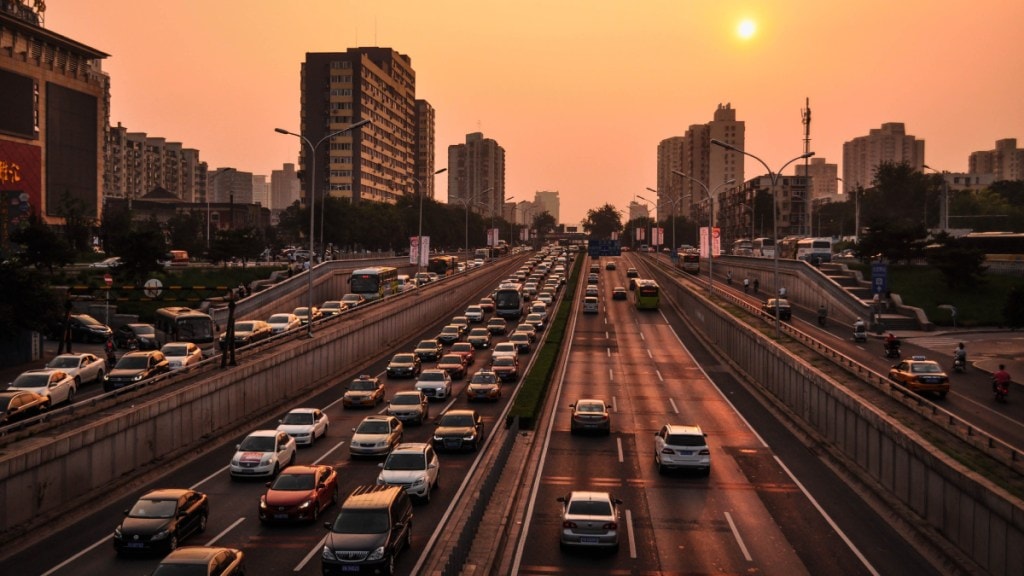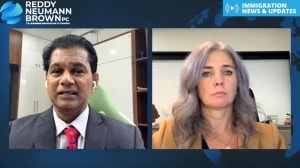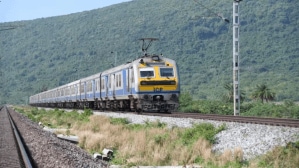On February 1, all eyes will be on Finance Minister Nirmala Sitharaman as she presents the government’s interim budget. Lower taxes, additional incentives or fiscal stimulus, each industry hopes to get some positive news. Industry captains from the Indian automotive industry have also shared their wishlist.
Abhishek Chakraborty, Executive Director, DTDC Express: “The attention of the government has been largely on enhancing the logistics and supply chain infrastructure in the country. We expect the expansion on the same vision while making appropriate efforts to make supply chains more robust and versatile. In the upcoming interim budget, we look forward to more strategic reforms and allocations to help establish a comprehensive logistics network spread across air, roads, ports, and especially railways to create a dynamic and responsive supply chain.”
ALSO READ
Budget 2024 Live Updates: Union Budget 2024 Live Streaming, FM Nirmala Sitharaman Budget 2024 Speech Live
Railway Budget 2024 Live Updates: Indian Rail Budget 2024 Live Streaming
Budget 2024 Income Tax Live Updates: Income Tax Slab Rate Change Budget 2024 Live Updates
Budget 2024 Stocks to Focus: Union Budget 2024 Impact on Share Market Today
“While the National Logistics Policy (NLP) is streamlining operations, effective regulatory and budgetary support is required to improve the digitisation of processes and unlock greater efficiencies. India’s logistics sector has shown tremendous growth in recent years, with a focus on relevant technological developments. We anticipate the interim budget to focus on shaping the industry with more advanced technologies like artificial intelligence, machine learning, the Internet of Things (IoT), and blockchain among others to streamline operations and unlock greater value.”
“Above all, we expect the government to continue to focus on development of infrastructure and technology and support the Indian logistics sector. Furthermore, we also expect the Union Budget 2024 to emphasise on eco-friendly measures like using clean energy, reducing waste generation, and opting for fuel-efficient vehicles.”
Anand Bang, COO – Sales & Marketing, Tata Motors Finance: “As India anticipates the upcoming Union Budget, it is noteworthy to recognise the direct link between government-led infra spending and a flourishing commercial vehicle ecosystem. The demand for commercial vehicles is a crucial metric, reflecting the pulse of the nation’s infrastructure development and driving growth for CV financiers, manufacturers, and OEMs. Policy measures and fiscal initiatives needs to continue to orient with infrastructure development, alongside ensuring robust capitalisation in NBFC sector. As NBFCs are emerging as frontrunners in pivoting the nation’s economic trajectory, the upcoming budget requires to maintain a strategic outlook for NBFCs, particularly accounting their reach, technological advances, and capabilities in understanding the financial needs of the unbanked and underserved populations to fully tap the entrepreneurial aspirations of India Inc.”
Nirmal K Minda, Chairman & MD, UNO Minda: “We appreciate the recent Government policies initiative like PLI, FAME, and BNCAP in spurring growth however, to further bolster this momentum, we seek further policy intervention in Rationalize GST structure for auto components, Incentives and tax benefits for Research and Development, Implementing calibrated import duty structures for auto components.”
“Furthermore, extending the time limit for exemption under Section 115BAB for new manufacturing companies to March 31st, 2026, would incentivize further investment and job creation. Additionally, continued support for electric vehicle adoption through extended FAME-II subsidies, increased charging infrastructure investments, and reduced GST rates on EVs remains paramount for accelerating India’s transition to sustainable mobility. Recognizing the lingering economic effects of the pandemic on lower income segments, the industry also urges the Government to consider special policy initiatives aimed at their upliftment and economic empowerment. We urge the government to craft a budget that fosters confidence, ignites innovation, and paves the way for a thriving, sustainable, and globally competitive automotive sector.”
Prithvideep Singh, General Manager, Continental Device India (CDIL Semiconductor): “The year 2023 has seen a lot of focus from the government to make India a semiconductor hub. As we step into 2024, the electronics and semicon industry expects a continued strategic focus on this sector. Our expectations are particularly high for the quick rollout of SPECS 2.0 and an expansion of the budget allocated to the India Semiconductor Mission. In addition, we advocate for a balanced distribution of funds. With multiple large projects seeking approval, the allocation will soon run out and MSMEs that are critical to building the semi ecosystem may miss out.”
“Simultaneously, we would like to see refurbished wafer fabs get covered under the Indian Semiconductor Mission given India’s large demand for discrete, sensors and other active components. Older fabs will be able to serve this large market in India very successfully.”
Dr Raghupati Singhania, Chairman & Managing Director, JK Tyre & Industries: “We’re optimistic about the Interim Budget driving sustained economic growth. We expect impressive GDP growth, supported by progressive policy measures for business, investments, and resilience. Focus on last-mile connectivity, infrastructure, and consistent automotive policies would propel sectoral expansion. A robust budget is vital for India’s journey to become the third-largest global economy.”
Nagesh Basavanhalli, Non-Executive Vice Chairman, Greaves Cotton: “With the 2024 Union Budget looming on the horizon, Greaves Cotton anticipates a nuanced approach by the Government to balance fiscal responsibility with investments in the economy to stimulate economic growth. In addition to social welfare initiatives to improve the ease of living of our populace, the company expects measures to boost consumption and an enabling environment to drive both private and corporate investments in the economy. Being an engineering major, Greaves is anticipating continued thrust on making India a manufacturing powerhouse, deeper investments in Infrastructure development and continued policy support in new-age industries like fuel agnostic and clean mobility, Electronics, and Sensors, amongst others, to enable India’s leapfrog to the future.”
Santosh Iyer, MD & CEO, Mercedes-Benz India: “We expect capex on infrastructural projects to continue, aiding the automotive sector. The policy push for green mobility should remain a key focus for the government, encouraging faster adoption of electric vehicles. The luxury car industry has significant value contribution to the GDP and our wish for a rationalised duty structure and GST stays on priority. Overall, we expect consistency in various policies and no surprises in the upcoming budget.”
S Sunil Kumar, Country President – Henkel India: “The Interim Union Budget 2024 is anticipated to provide ongoing policy assistance and PLI schemes to the auto and auto component sectors to encourage domestic production. As India ranks third among the world’s largest auto industries, the demand for passenger vehicles, ride-hailing cabs, and electric vehicles is expected to sustain momentum. Promoting the domestic production of high-performance adhesives and sealants can play a vital role in meeting emerging consumer needs and benefitting the auto industry in the long run. A supportive ecosystem can drive innovation, boost manufacturing, and pave the way for a sustainable future for the Indian auto industry. Henkel Adhesive Technologies is dedicated to contributing to this journey by providing state-of-the-art adhesive solutions that enable lighter, stronger, and more efficient vehicles.”
Swapnesh R Maru, Deputy Managing Director – Corporate Planning, Finance & Administration and Manufacturing, Toyota Kirloskar Motor: “The proficient and agile handling of fiscal policy issues in the last few years, amidst global volatility and significant geopolitical risks, has successfully shielded the Indian economy from major headwinds. As a result, India has emerged as the fifth largest and the fastest growing major economy globally. The emphasis given to the manufacturing sector through schemes such as PLI and significant focus towards both physical and digital infrastructure along with other measures including efforts to improve the ease of doing business has attracted large inflow of investments. Notably, the automotive sector also saw an upswing.”
“Looking ahead, policy stability and continued emphasis on spurring investment and infrastructure development will not only further enhance country’s global competitiveness but also lead to growth of the manufacturing and service sector, improve supply chain efficiencies and generate higher employment thereby leading to social gains. We remain confident that the Government will continue its push towards shifting the economy and transportation sector to a greener future that is less dependent on fossil fuels and include cleaner energy options that are best suited for our country’s requirements at scale and in the fastest possible manner. This includes policy support to various technologies that utilises natural and indigenous energy sources such as solar, wind energy, biofuels like ethanol and biogas that will help in the creation of economic wealth within the country there by minimising our import dependency and arresting economic vulnerability.”
“Additionally, the education and skilling sectors that capitalises on the country’s demographic dividend also need continued support through sufficient allocations that are aligned to the rapidly evolving technological changes. Implementing hi-tech skilling programs that extend beyond geographical boundaries to reach rural markets will be pivotal in addressing the shortage of skilled manpower and ensuring the production of globally competitive products and services.”
Vimal Singh SV, Founder & CEO, ReadyAssist: “In anticipation of the upcoming budget, I envision a transformative leap for road safety in India. I strongly believe our country needs infrastructure and livelihood upgrades of the roadside emergency assistance providers. Today we have close to 8000 recovery trucks which are also aging and our county would need atleast 20000 recovery trucks to ensure a faster mobilisation of accidental and broken vehicles. Probably we are the only developing nation in the world whose emergency roadside assistance doesn’t have recuse helicopters. This is all due to the least budget allocation and reduced focus. I would wish the government to bring guidelines that direct every automobile manufacturer to earmark 1% of the total price of the vehicle to the emergency assistance fund to ensure 3 years of such support ecosystem. With Budget 2024 as the catalyst, let’s propel India into a new era of road safety, where collaboration and consciousness reign supreme. Together, let’s make this vision a reality!”








